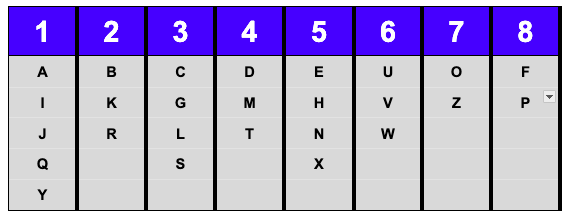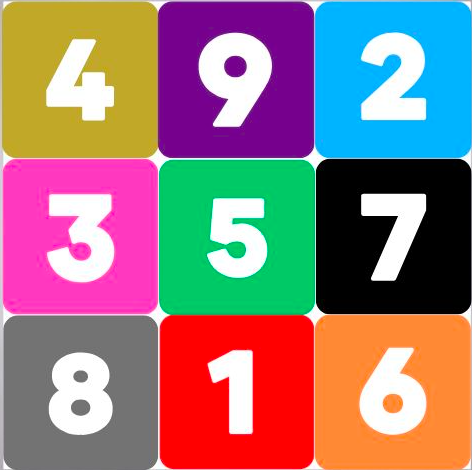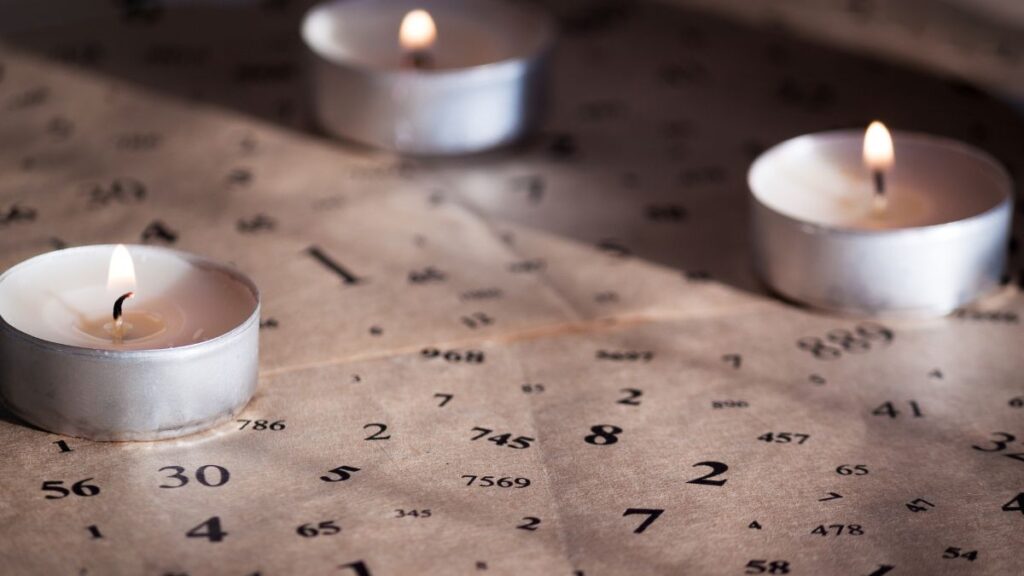Numerology is based on the idea that numbers carry vibrations, energy, and symbolic meanings that can influence people’s personalities, destinies, and life experiences. Over the centuries, different cultures have developed numerology systems, each with unique approaches and interpretations. This article explores various prominent types of numerology, including Pythagorean, Chaldean, Indian, Kabbalah, and more.
1. Pythagorean Numerology
Pythagorean numerology, also known as Western numerology, is one of the most popular numerology systems today. Named after the Greek mathematician Pythagoras, this system is based on the belief that everything in the universe can be reduced to numerical values. Pythagoras believed that numbers are the building blocks of reality, each carrying a unique vibrational frequency.
In Pythagorean numerology, each letter of the alphabet (see chart below) is assigned a number from 1 to 9 (with the exception of master numbers 11, 22, and 33, which hold special meanings). The numbers are used to calculate core aspects of an individual’s numerology profile, such as the Life Path Number, Destiny Number, Soul Urge Number, and Personality Number. These core numbers help provide insights into a person’s character, life purpose, strengths, weaknesses, and future potential. (Learn more).

Key Features:
- Numbers are assigned from 1 to 9.
- Emphasis on core numbers (Life Path, Destiny, Soul Urge).
- Use of master numbers (11, 22, 33) with heightened significance.
Further reading on Pythagorean Numerology:
- Karmic Numbers:Unresolved Lessons From Past Lives
- Understanding Pinnacle Cycles in Numerology
- Guide to Period Cycles in Numerology
- Understanding the Personal Year in Numerology
- Unlocking Success with Business Name Numerology
- Understanding Numerology Name Compatibility
- Numerology Name Change for a New Destiny
- Chaldean vs Pythagorean Numerology
2. Chaldean Numerology
Chaldean numerology is one of the oldest numerology systems, originating from ancient Mesopotamia (modern-day Iraq). Unlike the Pythagorean system, Chaldean numerology assigns numbers from 1 to 8, with the number 9 considered sacred and not used unless it appears as a final result. This system is said to be more accurate because it focuses on the vibrational energy of the numbers associated with each letter rather than simply following an alphabetical sequence.

Chaldean numerology emphasizes the importance of name vibrations and their impact on a person’s life. It uses a method called the Name Number, which represents the numerical value of an individual’s name, revealing traits, challenges, and karmic influences. The system is more intricate than Pythagorean numerology, making it less common but still highly respected among practitioners. (Learn more).
Key Features:
- Numbers range from 1 to 8 (9 is considered sacred).
- Focus on name vibrations and their effects.
- Considered more accurate and complex than Pythagorean numerology.
Further reading on Chaldean Numerology:
3. Indian/Tamil/Vedic Numerology
Indian numerology, also known as Vedic numerology or Tamil numerology, is based on ancient Hindu scriptures. This system combines elements of astrology and numerology, taking into account not only the birth date but also planetary positions and their influences. Indian numerology often assigns importance to numbers derived from an individual’s name and birthdate, analyzing these figures to provide a comprehensive understanding of one’s personality, destiny, and life path.
In this system, there are three core numbers: the Psychic Number, Destiny Number, and Name Number. The Psychic Number reflects one’s inner self, personality, and daily behavior, while the Destiny Number signifies life goals, purpose, and achievements. The Name Number is derived from the person’s name, revealing insights into their social interactions and public persona.
Key Features:
- Integration of numerology and astrology.
- Focus on three core numbers (Psychic, Destiny, Name).
- Emphasis on planetary influences and Vedic traditions.
Learn more about Indian Numerology.
4. Kabbalah Numerology
Kabbalah numerology originates from the mystical branch of Judaism known as Kabbalah. It is deeply rooted in spiritual and esoteric beliefs, viewing numbers as sacred symbols that hold hidden meanings. Unlike other numerology systems that use a numerical sequence for the letters of the alphabet, Kabbalah numerology assigns a value to each letter based on Hebrew numerology, or gematria.
This system primarily focuses on the meaning of names and words, decoding the spiritual messages and energies associated with each name. It is a system that has fewer calculations compared to Pythagorean or Chaldean numerology, as it does not prioritize numbers derived from birth dates. Instead, it delves into the hidden meanings and vibrational energies behind words and their corresponding numerical values.
Key Features:
- Rooted in Jewish mysticism and spirituality.
- Focuses on the numerical values of names and words.
- Assigns meanings based on Hebrew numerology (gematria).
Learn more about Kabbalah Numerology.
5. Chinese Numerology
Chinese numerology is closely tied to the cultural and philosophical traditions of China. In Chinese culture, numbers have specific associations and meanings based on how they sound and the cultural beliefs surrounding them. For example, the number 8 is considered extremely lucky because it sounds like the word for “wealth” or “prosperity,” while the number 4 is often avoided because it sounds like the word for “death.”
One of the most well-known aspects of Chinese numerology is the Lo Shu Grid (see figure below), also known as the Magic Square, which dates back over 4,000 years. The Lo Shu Grid is used to analyze personality traits, life paths, and future predictions by arranging the numbers 1 through 9 in a grid pattern, where each number holds a specific meaning. Chinese numerology also integrates elements of the Five Elements Theory (wood, fire, earth, metal, water) and Yin-Yang principles, adding depth to the interpretations. (Learn more).

Key Features:
- Numbers are interpreted based on their phonetic sounds and cultural beliefs.
- The Lo Shu Grid (Magic Square) is a prominent tool for analysis.
- Incorporates concepts from Chinese philosophy, such as the Five Elements and Yin-Yang.
Further reading on Chinese Numerology:
- Introduction to Chinese Numerology
- Chinese Numerology: Understanding the Cultural Significance of Numbers
- The Lo Shu Grid: Understanding the Ancient Numerology Tool
6. Other Relevant Numerology Systems
Egyptian Numerology
Ancient Egyptians also practiced a form of numerology that integrated sacred geometry, astrology, and mythology. While less common in modern times, Egyptian numerology sought to understand life paths and destinies by decoding symbols and numbers found in hieroglyphs. This system is deeply mystical, focusing on spiritual growth and enlightenment.
Mayan Numerology
The Mayan calendar is famous for its complex numerological system, which was used to track time, predict events, and understand cosmic cycles. The Mayans believed in a numerical code that influenced everything from daily life to spiritual journeys. Their system is complex, with a strong emphasis on cycles and patterns, often associated with the energies of specific days and the concept of “Tzolk’in,” a 260-day sacred calendar.
Western Esoteric Numerology
Western Esoteric numerology merges numerology with elements of Tarot, astrology, and alchemy. Practitioners use numerological calculations to draw insights from Tarot cards, combining the meanings of numbers with the symbolism of the cards. This fusion helps provide a more profound understanding of life’s challenges and opportunities, emphasizing personal growth and self-awareness.
Learn more:
- The Connection Between Numerology and the Tarot
- Tarot Numerology: Enhancing Readings With Numbers and Symbols
Choosing the Right Numerology System for You
Numerology is a diverse and fascinating field that varies greatly across cultures and historical contexts. From the straightforward numerical analysis of the Pythagorean system to the mystical interpretations of Kabbalah and the cultural nuances of Chinese numerology, each system offers unique perspectives on how numbers influence our lives. Whether you are drawn to the vibrational accuracy of Chaldean numerology, the astrological integration of Indian numerology, or the symbolic depth of Egyptian and Mayan systems, numerology provides a powerful tool for self-reflection, insight, and spiritual exploration.
As numerology continues to evolve, new interpretations and systems emerge, adding depth to the ancient practice. Understanding the different types of numerology allows enthusiasts and practitioners to choose the system that resonates most with them, deepening their journey of self-discovery and insight.

